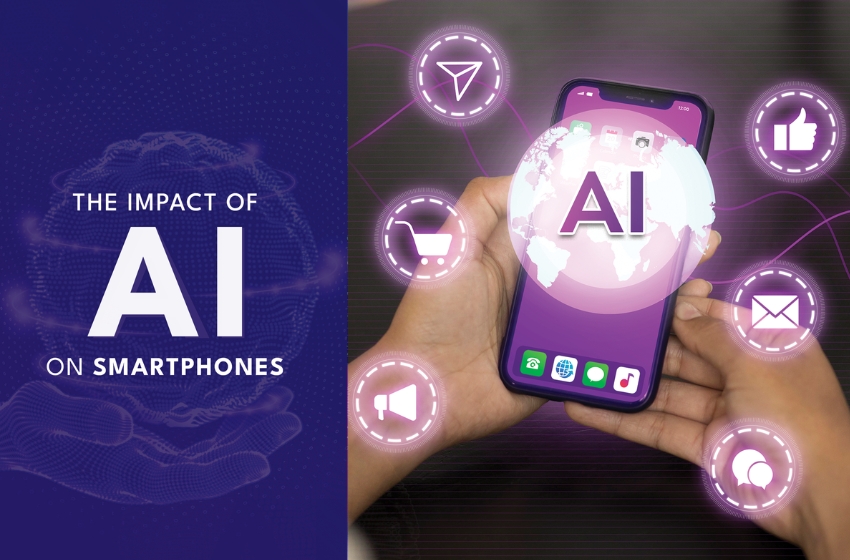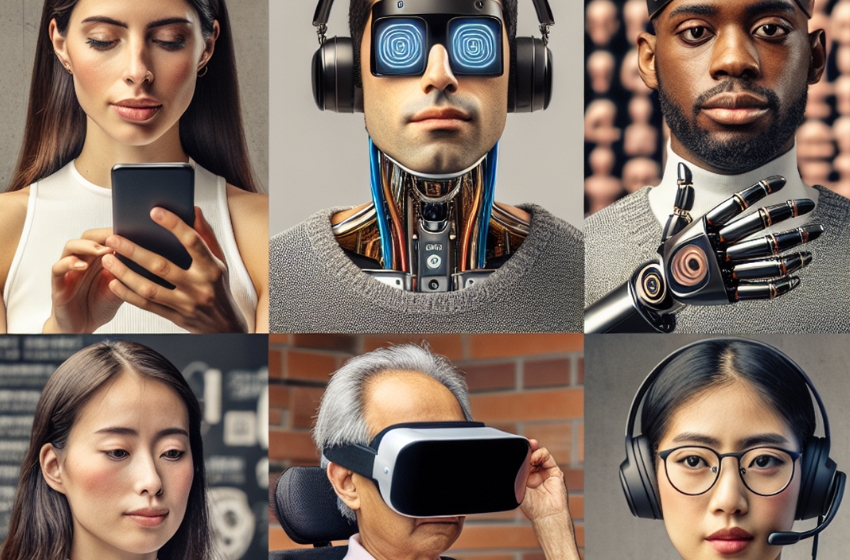Revolutionising Smartphones- The Impact of Artificial Intelligence

In recent years, the smartphone industry has shown signs of reaching a plateau in innovation. Many new models boast incremental upgrades—slightly better cameras, a modest increase in battery life, or minor cosmetic changes. However, the advent of Artificial Intelligence (AI) has the potential to breathe new life into smartphones, making them more intuitive, efficient, and crucially, more integrated into our daily lives than ever before.
Personalised User Experience
AI’s most noticeable impact on smartphones is its ability to create a highly personalised user experience. Machine learning algorithms analyse user behaviour over time to customise services and predict future needs. Imagine a smartphone that not only understands your preferences in apps but also anticipates the information you might require at different times of the day. This kind of predictive technology could adjust your alarms based on your sleep patterns or suggest the fastest route home during rush hour without being asked.
Enhanced Battery Life
Battery life remains a critical concern for smartphone users. AI can address this by optimising power consumption based on usage patterns. Smart management systems can learn which applications consume the most power and allocate battery resources more efficiently. This means your phone could automatically close background apps that are not in use or reduce resource allocation to functions that are less critical during certain times of the day.
Superior Photography

Smartphones have largely replaced traditional cameras for everyday photography. AI enhances this experience by improving image quality through computational photography techniques. These systems can analyse and adjust lighting, focus, and colour settings in real-time to produce the best possible image. Beyond just capturing images, AI can also learn individual aesthetic preferences and edit photos accordingly, potentially transforming average shots into professional-grade photographs.
Real-Time Language Translation
AI-powered translation tools are transforming smartphones into real-time interpreters, a boon for global travellers and multicultural communication. These tools are rapidly improving, with enhanced capabilities to understand and translate slang, idioms, and cultural nuances more accurately. This not only breaks down language barriers but also enriches cross-cultural interactions, fostering a deeper understanding and connection among people worldwide.
Improved Security Features
Security is another domain where AI can make significant advancements. Facial recognition technology has already become more common, but AI can take security features to a new level. By learning the particular patterns and behaviours of a user, AI can detect any anomalies that might indicate fraudulent activity. Moreover, AI can manage multiple layers of security, from biometric data to behavioural patterns, ensuring that the device’s security adapts to emerging threats.
Accessibility Enhancements

AI can dramatically improve accessibility features on smartphones, helping individuals with disabilities by adapting interfaces and functionalities to meet their needs. For instance, AI-driven voice recognition can transform voice commands into actions, helping those with visual impairments or motor limitations to navigate their phones more effectively. Predictive text and customised response suggestions can also aid users with cognitive impairments by making communication simpler and more intuitive.
The Future of AI in Smartphones
Looking to the future, the potential applications of AI in smartphones are boundless. We are moving towards a scenario where our phones will act as central hubs for all our smart technologies, controlled effortlessly by our voices and gestures. AI could integrate our smartphones with other technology in our homes and workplaces, creating a seamless interaction across all devices.
As we consider the integration of AI into smartphones, it’s crucial to address concerns about privacy and data security. The increased personalisation and efficiency come with the need for robust data protection measures. Manufacturers and app developers must prioritise securing user data and ensuring transparency about how it is used.
AI promises to transform the everyday smartphone into a more adaptive, responsive, and essential tool in our digital lives. By harnessing the power of AI, smartphone manufacturers can offer truly innovative features that go beyond mere communication, making these devices central to managing our digital and physical environments. The implications of AI in the smartphone industry suggest a vibrant future, one where our devices are not only smart but also insightful. This shift has the potential to fundamentally change how we interact with technology, making our digital experiences more connected, intuitive, and, above all, tailored to our individual lives.




